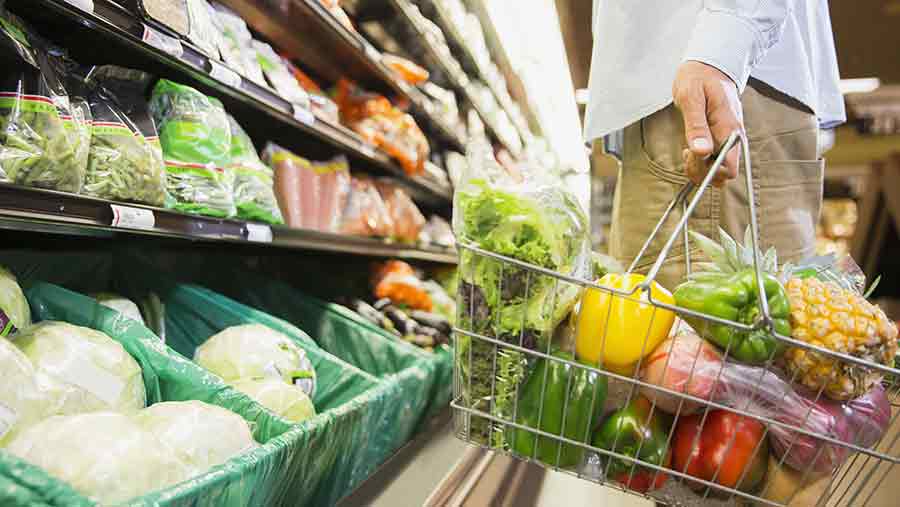Outlook 2016: Strong pound to dominate UK economy
 © Caiaimage/REX Shutterstock
© Caiaimage/REX Shutterstock After a number of years of economic downturn followed by a sluggish recovery, the UK economy is back in growth.
This offers agriculture a wealthier marketplace, but also brings challenges in the form of a stronger pound and possible bank base rate increases, says Andersons research economist Graham Redman.
In addition, while on the surface the domestic outlook seems positive and healthy, there are signs that the global economy remains fragile.
Business pointers
- Borrowers should consider fixing rates in 2016 to reduce risk
- Look for lucrative local markets
- Don’t assume all problems will be solved by Chinese economic growth
China’s weakening economic growth is the main cause, although the eurozone has also been sluggish in 2015. China’s slowdown has been hard on Germany and the Greek crisis has unsettled the Mediterranean economy, says Mr Redman.
See also: 12 things farmers need to know about the spending review
“Europe is the UK’s largest trading partner, so weak demand there is one factor reducing domestic growth forecasts. In addition, sterling has strengthened against the euro, because exchange rates reflect the relative strength [and future expectations] of economies.”
The pound/euro exchange rate is the biggest single determinant of UK farm profitability, says Mr Redman.“We do not forecast a swift return to a weak pound in the short or medium term. Our average projections for 2016 have assumed €1 will be worth 75p.”
Borrowing costs may rise in 2016 – inflation has been low, largely due to falling energy prices, but the effect of this will start to unwind in 2016.
“Policymakers will want to ensure the economy does not overheat. Rising borrowing costs might hurt some farmers, but agricultural debt is low, so this would have a minimal effect, assuming rates rose slowly. Budget for base rates to be 1% by the end of 2016.”
FW says…
- Expect volatility not only in prices but policy too – for example the U-turn on renewables support, Russian import ban, neonics ban. From a domestic perspective, more swift changes of direction could arise as government looks to rebuild national finances.
- Using trade credit ? A rise in interest rates may make this less easily available.
- TTIP – this huge transatlantic trade deal could be concluded in next two years. EU beef, pork and poultry are most at risk while dairy exports may benefit.
- Land prices – the market has been starved but another year with output prices around current levels and it wouldn’t take a big increase in the volume of land for sale to tip prices into decline.
Overall, the strong pound will probably dominate the economics of UK agriculture for 2016, says Mr Redman.
“Globally, the depressed oil price will help reduce the costs of inputs. However, the oil price is linked to other commodities, including agricultural ones, and this might play a part in keeping a lid on values.”
EU referendum
The referendum on Britain’s EU membership could turn out to be the biggest policy issue of 2016.
The outcome will have a major influence on how agriculture develops in the coming decades, says Andersons senior agricultural economist Michael Haverty.
“Without the CAP, the profitability of UK agriculture would fall sharply – at least in the short term.
“Leaving the EU would also create significant trade uncertainties and could lead to a sharp decline in farm exports if the UK loses its single market access.”
If the UK did retain that access it would still have to comply with EU rules without having a meaningful influence on how such regulations were formulated, he adds.
Exiting the EU could also increase the chances of UK disintegration, as England is less reliant on agriculture than Scotland, Wales or Northern Ireland. “One has to question whether an exit would really benefit the UK if that happens,” says Mr Haverty.
Regardless of the referendum, the Basic Payment Scheme will remain in place in 2016, says Andersons research consultant Emily Evans.
Greening rules for 2016 are to remain largely the same as in the first year of the BPS.
However, farm commissioner Phil Hogan has committed to a programme of BPS “simplification”, with a particular focus on the greening rules.
“The results of this should be known at the beginning of 2016. But it will be at least 2017 and possibly 2018 before any substantial rule changes are made, although the ecological focus area requirement could rise to 7% from 2017.”
The BPS is funded until the 2019 claim year. Some form of direct support is expected to remain after 2019, although growers can expect rates to continue to decrease, assuming Britain stays in the EU, says Mrs Evans.
With support payments decreasing, producers must focus on areas that can be controlled and investigate extra funding sources such as the rural development pillar.
